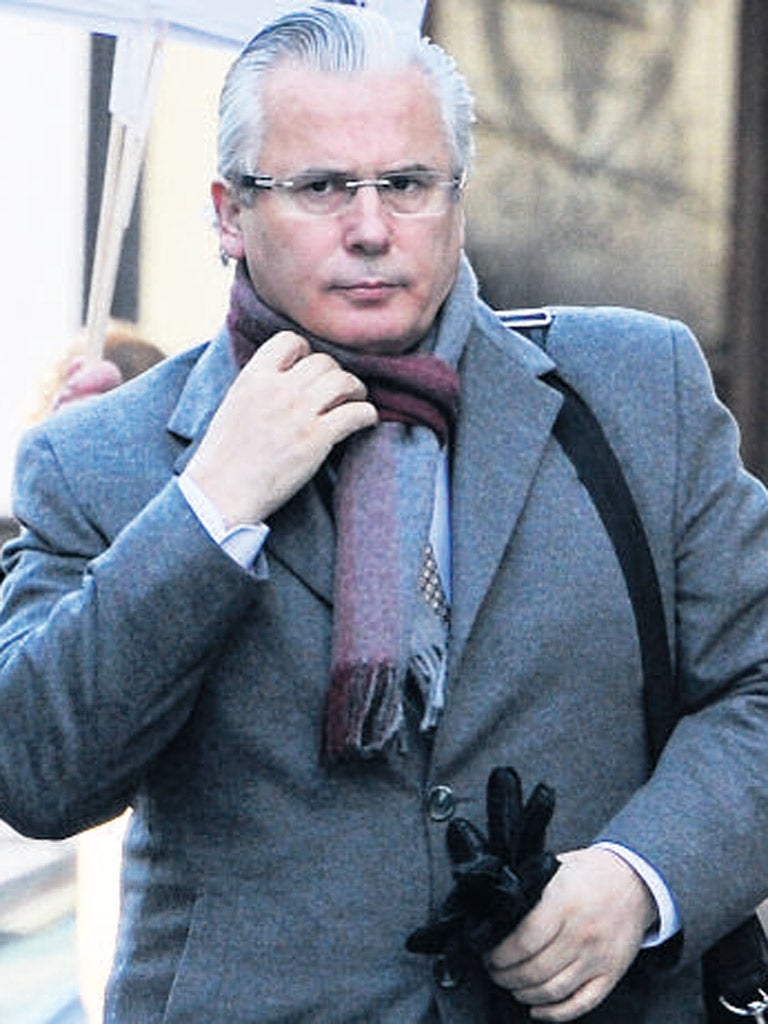Spain's leading human rights judge convicted of wiretapping

Spain's best-known judge, Baltasar Garzón, suffered an abrupt and dramatic end to his legal career when he was banned from his profession for 11 years for authorising illicit recordings of lawyers' conversations during a massive political corruption case. The ruling is not subject to appeal.
Mr Garzón, who is well known for pursuing international human rights cases, is most famous for his attempt to extradite General Augusto Pinochet in 1998, which saw the former Chilean dictator detained for a year in Britain. He also succeeded in putting Adolfo Scilingo, a notorious member of the 1970s Argentinean junta, behind bars.
Yesterday's verdict, though, means Mr Garzón's days as Spain's most intrepid legal watchdog are over. The 56-year-old was barred after his wiretaps in the so-called "Gurtel case" – a corruption scandal in which entrepreneurs were accused of paying off politicians from the ruling Partido Popular party in order to obtain regional government contracts – were described by the judges as "practices of totalitarian regimes". Mr Garzón must also pay the defence team's costs, as well as an as yet unspecified fine.
Mr Garzón had claimed the wiretaps were necessary because he believed witnesses in the Gurtel case were giving their defence lawyers instructions to launder money.
But the statement by the judges, who issued a unanimous verdict, gave no quarter and argued that Mr Garzón had used police-state methods that stripped away basic the legal rights of the accused, engaged in professional misconduct and violated constitutional guarantees.
Mr Garzón's legal headaches do not end there, however, because he also faces two other trials. In one, he is accused of overstepping his authority in 2008 during his attempts to investigate human rights abuses during the Franco era. In another case, he is charged with accepting illicit payments from Spain's biggest bank, Santander.
Join our commenting forum
Join thought-provoking conversations, follow other Independent readers and see their replies
Comments
Bookmark popover
Removed from bookmarks